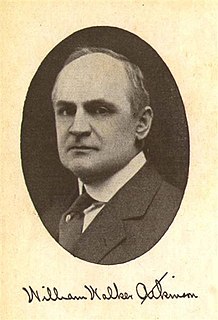A Quote by Ralph Waldo Emerson
We are ashamed of our thoughts and often see them brought forth by others.
Related Quotes
I have since often observed, how incongruous and irrational the common temper of mankind is, especially of youth ... that they are not ashamed to sin, and yet are ashamed to repent; not ashamed of the action for which they ought justly to be esteemed fools, but are ashamed of the returning, which only can make them be esteemed wise men.
The library will endure; it is the universe... We walk the corridors, searching the shelves and rearranging them, looking for lines of meaning amid leagues of cacophony and incoherence, reading the history of the past and of the future, collecting our thoughts and collecting the thoughts of others, and every so often glimpsing mirrors, in which we may recognize creatures of the information.
Detachment is not indifference. it is the prerequisite for effective involvement. Often what we think is best for others is distorted by our attachments to our opinions. We want others to be happy in the way we think they should be happy. It is only when we want nothing for ourselves that we are able to see clearly into others needs and understand how to serve them.
We are sending out thoughts of greater or less intensity all the time, and we are reaping the results of such thoughts. Not only do our thought-waves influence ourselves and others, but they have a drawing power - they attract to us the thoughts of others, things, circumstances, people, 'luck', in accord with the character of the thought uppermost in our minds.
Sentient beings, self and others, enemies and dear ones-all are made by thoughts. It is like seeing a rope and mistaking it for a snake. When we think that the rope is a snake, we are scared, but once we see that we are looking at a rope, our fear dissipates. We have been deluded by our thoughts. Likewise, mentally fabricating self and others, we generate attachment and aversion.
First Thoughts are the everyday thoughts. Everyone has those. Second Thoughts are the thoughts you think about the way you think. People who enjoy thinking have those. Third Thoughts are thoughts that watch the world and think all by themselves. They’re rare, and often troublesome. Listening to them is part of witchcraft.
Since the real purpose of meditation is to increase our capacity to help others, taking time each day to meditate is not selfish. We have to manage our time and energy in such a way that we can be of maximum benefit to others, and to do this we need time alone to recover our strength, collect our thoughts, and see things in perspective









































